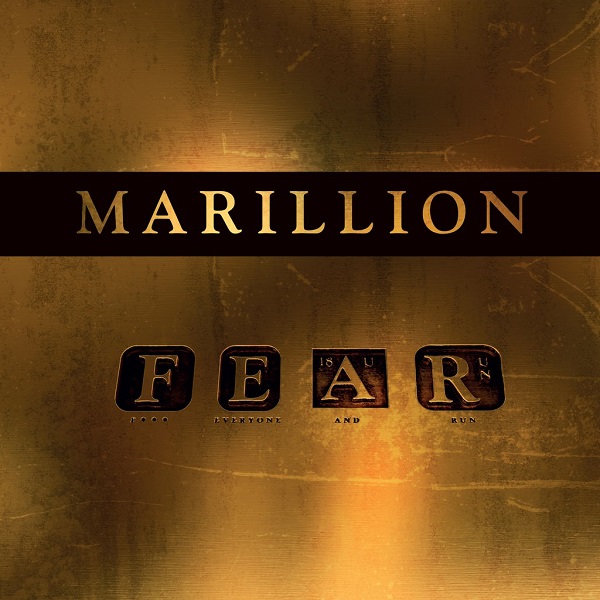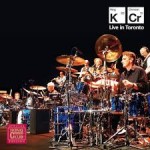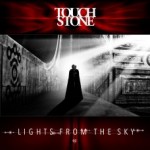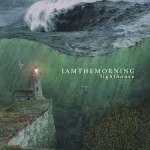As you all ought to know, I’m really a rock reviewer, so this isn’t a conventional review; I’ve written a lot more about myself that is proper for a typical rock review, but feels appropriate to set the rest of the review in context.
Before I discovered rock and roll in my late teens I listened to a lot of classical music. My mum was a member of an amateur choral society, and I sat through their concerts from an early age. I was probably too young to appreciate some of the seemingly interminable oratorios, but the Christmas carol concerts were always entertaining. In more recent years, while living in Cheadle Hulme, I always attended the very traditional Nine Lessons and Carols at the Parish Church, often the last thing I did up north before heading south to spend Christmas with family. That’s something I’m missed the last couple of years; very often I’ve found myself at a gig as a reviewer the last Sunday before Christmas.
So attending a Christmas concert by one of Britain’s top amateur choirs wasn’t so much a step outside my comfort zone as it was a sense of things coming full circle, especially when the choir in question includes Anne-Marie Helder of Panic Room and Luna Rossa, who needs no introduction to to regular readers of this blog.
The concert itself was as beautiful as the building it was held in. They put together a hugely varied program; with a lot of modern classical compositions especially in the first half, alongside an African-American spiritual, an Oregonian folk carol, a traditional number from Botswana as well as well-know carols and secular Christmas songs. Highlights of the first half included “Serenity (O Magnum Mysterium)” by Norwegian-born composer Ola Gjeilo, a piece accompanied by violin and cello, and works best if you close your eyes and let the music waft over you. They followed this with the completely bonkers “Christus Est Natus” by Slovenia’s Damien MoÄnik.
For parts of the concert, Coro94 shared their stage with a children’s choir in the shape of the Fulham Cross Girls’ School Glee Club, a reminder of Coro94′s origins as a youth choir. They performed some numbers on their own, including an arrangement of Sia’s “Chandelier”, and joined Coro94 on others, such as the traditional carol “O Holy Night”.
The second half was more up-tempo with an emphasis on traditional carols, with some audience participation on the ambitiously complicated folk carol “Come and I Will Sing You”. They ended with a couple of well-known secular Christmas songs which came over as something equivalent to prog bands covering 70s standards as Christmas encores.
It’s something a little different from your typical rock gig; as is common in events held in churches. the bar served wine but not beer. But much like some contemporary folk or jazz there was nothing that shouldn’t be accessible to a more open-minded progressive rock fan; the Gjeilo piece in particular had a strong Iamthemorning feel about it. It makes me wonder how much being steeped in classical and choral music from an early age has influenced Anne-Marie Helder’s subsequent songwriting, and whether that explains something of why I love her music.


 The former Mostly Autumn lead singer’s second album of 2016 celebrates the semi-acoustic folk-rock side of her music, combining new songs with reworkings of older numbers, with arrangements emphasising flute and harp. There’s a beautiful cover of Sandy Denny’s “Winter Winds”, and the two new songs, especially the seasonal title track, are gorgeous.
The former Mostly Autumn lead singer’s second album of 2016 celebrates the semi-acoustic folk-rock side of her music, combining new songs with reworkings of older numbers, with arrangements emphasising flute and harp. There’s a beautiful cover of Sandy Denny’s “Winter Winds”, and the two new songs, especially the seasonal title track, are gorgeous. A live snapshot of the latest incarnation of the legendary progressive rock band from their 2015 tour with a setlist combining brand new material alongside classics from the 60s, 70s and beyond. The seven-piece band including Tony Levin, saxophonist Mel Collins and no fewer than three drummers creatively re-imagine the older material while remaining faithful to the spirit, and the largely instrumental new numbers are impressive too. A great document from a tour that was memorable for all the right reasons.
A live snapshot of the latest incarnation of the legendary progressive rock band from their 2015 tour with a setlist combining brand new material alongside classics from the 60s, 70s and beyond. The seven-piece band including Tony Levin, saxophonist Mel Collins and no fewer than three drummers creatively re-imagine the older material while remaining faithful to the spirit, and the largely instrumental new numbers are impressive too. A great document from a tour that was memorable for all the right reasons. Poland’s finest band released this ambient and largely electronic album to commemorate guitarist Piotr GrudziÅ„ski, who died suddenly and unexpectedly early in the year. It’s a compilation of remixes and previously-released bonus material complemented by four completely new tracks, At times the shimmering electronic arpeggios and electronic pulsings are to Tangerine Dream what Riverside’s more guitar-based music was to Porcupine Tree, but as always they’ve far more than copyists.
Poland’s finest band released this ambient and largely electronic album to commemorate guitarist Piotr GrudziÅ„ski, who died suddenly and unexpectedly early in the year. It’s a compilation of remixes and previously-released bonus material complemented by four completely new tracks, At times the shimmering electronic arpeggios and electronic pulsings are to Tangerine Dream what Riverside’s more guitar-based music was to Porcupine Tree, but as always they’ve far more than copyists. This four track EP is first release by the new-look Touchstone with Aggie on vocals and Liam Holmes on keys. It’s a move away from the pared-back approach of “Oceans of Timeâ€, with big guitars and soaring vocal lines, but the sound is still clearly identifiable as Touchstone, and they’re sounding like a coherent band in what is clearly a new beginning for the band.
This four track EP is first release by the new-look Touchstone with Aggie on vocals and Liam Holmes on keys. It’s a move away from the pared-back approach of “Oceans of Timeâ€, with big guitars and soaring vocal lines, but the sound is still clearly identifiable as Touchstone, and they’re sounding like a coherent band in what is clearly a new beginning for the band. After some rather turbulent times within the band, Crippled Black Phoenix bounce back very strongly with a powerful follow-up to 2014′s “White Light Generator”. Beginning with a track called “Dead Imperial Bastard”, Bronze is a dark, angry and very intense record that in places sounds like Swans jamming with Pink Floyd, filled with dense, boiling guitars and ominous electronic soundscapes. It’s the sort of record that leaves you exhausted by the time you reach the end.
After some rather turbulent times within the band, Crippled Black Phoenix bounce back very strongly with a powerful follow-up to 2014′s “White Light Generator”. Beginning with a track called “Dead Imperial Bastard”, Bronze is a dark, angry and very intense record that in places sounds like Swans jamming with Pink Floyd, filled with dense, boiling guitars and ominous electronic soundscapes. It’s the sort of record that leaves you exhausted by the time you reach the end. The Pineapple Thief have always represented the streamlined modern face of progressive rock, and this album is a distillation of the best elements of their sound. There are moments of fragile beauty, times when they rock out, and the whole thing flows seamlessly. The band have always drawn comparisons with Radiohead. But while “A Moon Shaped Pool” is a good album, “Your Wilderness” is a better one. But you have to wonder how many mainstream critics who put Radiohead high in their end-of-year lists have even heard “Your Wilderness”.
The Pineapple Thief have always represented the streamlined modern face of progressive rock, and this album is a distillation of the best elements of their sound. There are moments of fragile beauty, times when they rock out, and the whole thing flows seamlessly. The band have always drawn comparisons with Radiohead. But while “A Moon Shaped Pool” is a good album, “Your Wilderness” is a better one. But you have to wonder how many mainstream critics who put Radiohead high in their end-of-year lists have even heard “Your Wilderness”. Mikael Ã…kerfeldt and his band continue to draw deep from the well of 70s underground rock and reinvents the sounds for the 21st century with his legendary mastery of rock dynamics. The result is a record that invokes the spirit of that decade while sounding like something that could only have been made today. It goes from thunderous heaviness to the sort of sinister and cinematic atmospherics that recalls his Storm Corrosion collaboration with Steven Wilson. This is their best album since “Watershed” and despite the lack of death-metal growls, their heaviest since “Ghost Reveries”.
Mikael Ã…kerfeldt and his band continue to draw deep from the well of 70s underground rock and reinvents the sounds for the 21st century with his legendary mastery of rock dynamics. The result is a record that invokes the spirit of that decade while sounding like something that could only have been made today. It goes from thunderous heaviness to the sort of sinister and cinematic atmospherics that recalls his Storm Corrosion collaboration with Steven Wilson. This is their best album since “Watershed” and despite the lack of death-metal growls, their heaviest since “Ghost Reveries”. The third studio album from the Russian duo comprising singer Marjana Semkina and classical pianist Gleb Kolyadin is one of those records that’s near-impossible to classify. Sometimes accompanied by a small chamber orchestra, sometimes with a rock rhythm section including Porcupine Tree’s Gavin Harrison and Colin Edwin, the result is a kaleidoscopic record of ever changing moods taking in rock, classical and even instrumental jazz. Comparisons between Marjana Semkina vocals and those of Kate Bush are entirely appropriate. This is a record that takes a few listens to fully appreciate since there’s so much to take in; you can keep hearing new things even after many listens.
The third studio album from the Russian duo comprising singer Marjana Semkina and classical pianist Gleb Kolyadin is one of those records that’s near-impossible to classify. Sometimes accompanied by a small chamber orchestra, sometimes with a rock rhythm section including Porcupine Tree’s Gavin Harrison and Colin Edwin, the result is a kaleidoscopic record of ever changing moods taking in rock, classical and even instrumental jazz. Comparisons between Marjana Semkina vocals and those of Kate Bush are entirely appropriate. This is a record that takes a few listens to fully appreciate since there’s so much to take in; you can keep hearing new things even after many listens.

